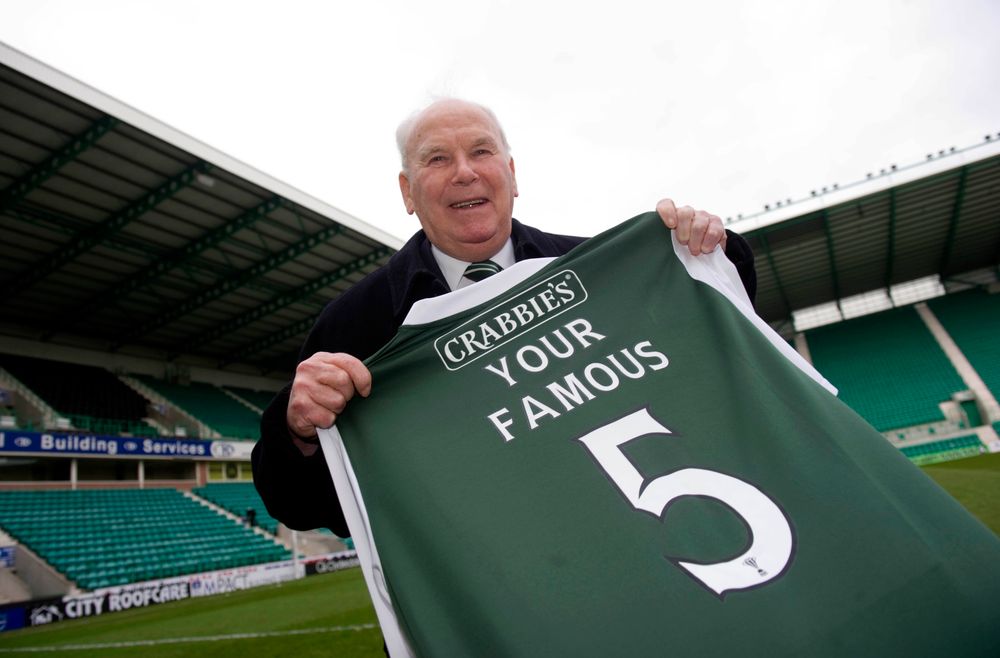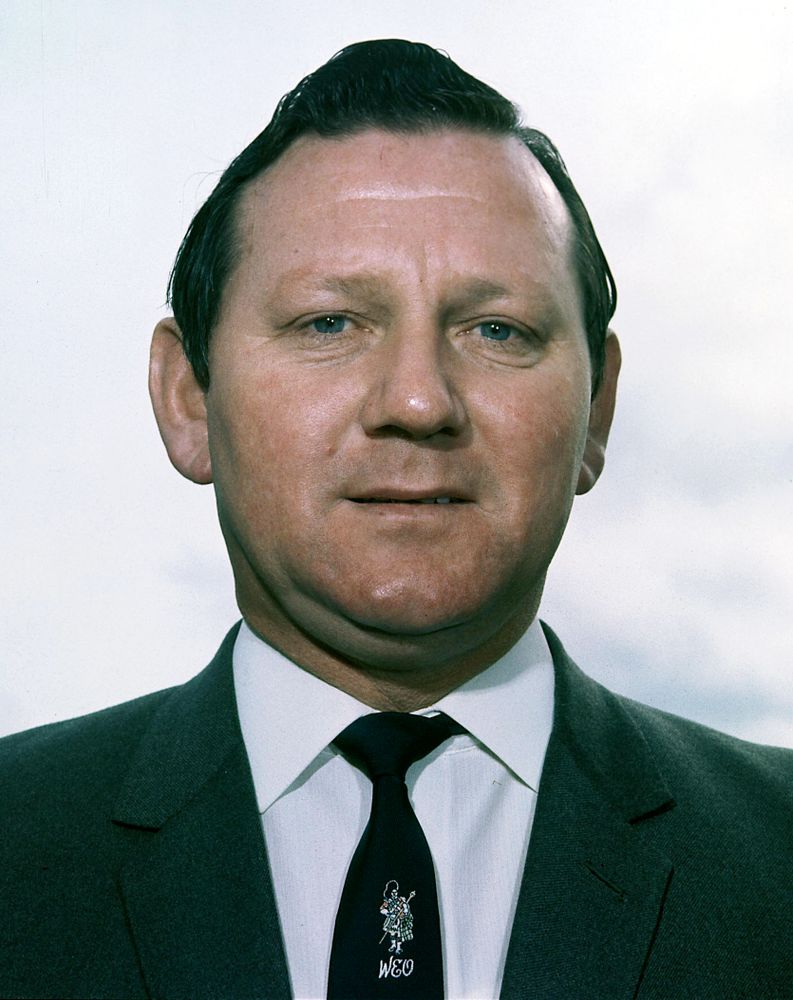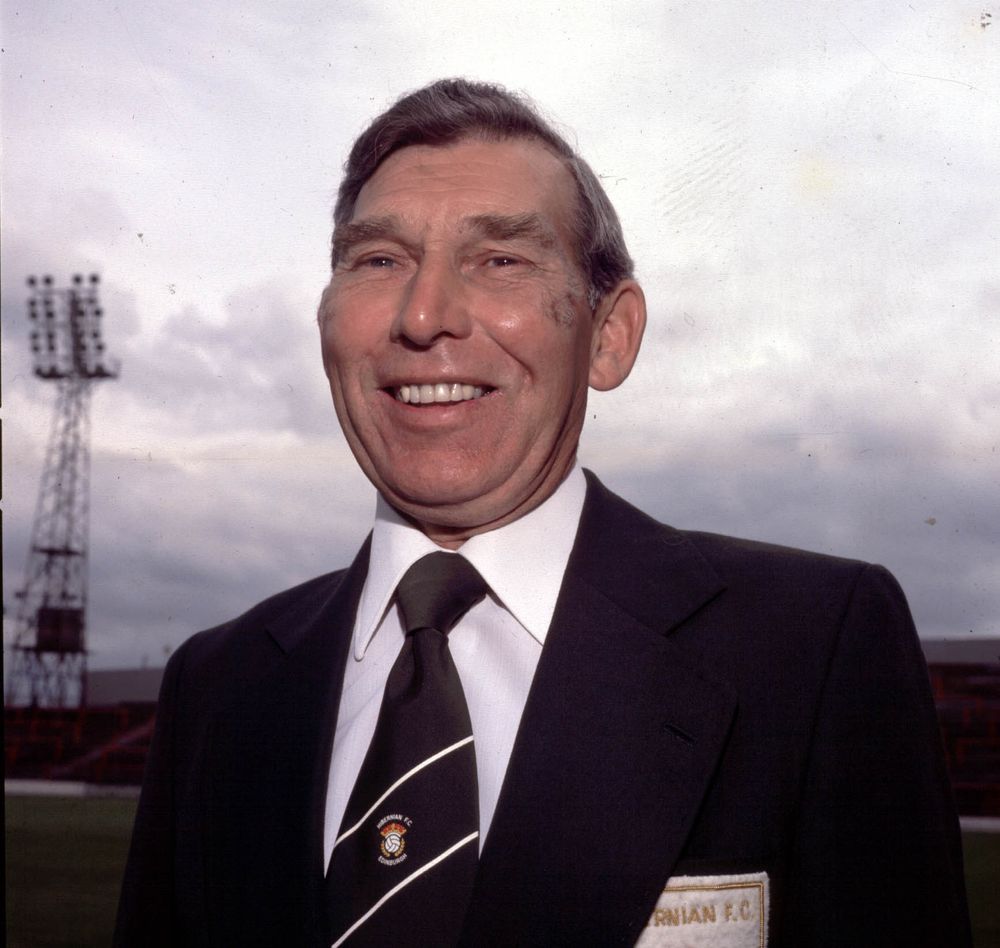Hibernian’s and arguably Scotland’s most celebrated forward line was the post war line up of Gordon Smith, Bobby Johnstone, Lawrie Reilly, Eddie Turnbull and Willie Ormond.
Individually, they were wonderful players, but collectively they were simply magical bringing colour and panache to the game.
They were popular not just in Scotland, regular close season European tours made them a hit across the continent, while, visiting Brazil in 1953, the Five, and in particular Smith, wowed the Maracana Stadium.
All five were Scotland internationals and they each scored more than 100 goals for the Club.
Smith was born in Edinburgh but moved to Montrose as a youngster and signed for Hibernian from Dundee North End in 1941. He made his debut scoring a hat trick in a 5-3 victory over Hearts at Tynecastle on 28 April 1941
Johnstone was brought up in the Scottish Borders town of Selkirk and signed for Hibernian in 1946. He made his debut in a 2-0 defeat to St Mirren at Love Street on 2 April 1949.
Reilly was brought up in the west side of Edinburgh and signed for the Club in 1945. He made his debut in a 4-2 victory over Kilmarnock at Rugby Park on 13 October 1945.
Turnbull hailed from Carronshore near Falkirk and signed for Hibernian in 1946 after serving on the Artic Convoys during World War 2. He made his debut in a 2-1 victory over Third Lanark at Cathkin Park on 26 October 1946.
Ormond was born in Falkirk and was the only member of the quintet to cost money. He joined Hibernian in 1946 for £1,500 from Stenhousemuir. He made his debut, scoring once in a 3-1 victory over Queen of the South at Palmerston Park on 7 December 1946.
The five made their collective debut in a friendly game at Nithsdale Wanderers on 21 April 1949 in a match which Hibs won by 8-1.
Their competitive debut came on 15 October that year when Hibernian beat Queen of the South.
In total they scored an incredible 1,074 goals for Hibernian and Together they won a total of 88 Scotland caps.
Smith won 19 caps scoring four goals and twice captained his country. He was also selected for a ‘Rest of Britain XI’ to face the Welsh in their 75th anniversary match.
Johnstone was capped on 17 occasions and scored nine goals.
“Last-Minute” Reilly, was the most-capped of the quintet, with 38 caps. Scoring 22 goals. Only Denis Law and Kenny Dalglish have scored more for Scotland since the end of the Second World War.

Turnbull won nine caps and was banished from the side following a heated altercation with one of the selectors before, after a near eight-year exile, he was recalled aged 35, to make a telling contribution to Scotland’s ill-fated 1958 World Cup final campaign in Sweden.
Ormond (below) was capped six times, scoring two goals. His first cap came in the disastrous 1954 World Cup finals campaign in Switzerland. He was then left-out until re-called to face England in 1959, the last of the Five to play in an international.

The five are still lauded by Hibs fans, many of whom never saw them play, but, have been brought-up on the tales of their greatness.
In February 1954, all five scored in the same match, a 7-0 Scottish Cup victory over Clyde.
The last time the five started a match together was also against Clyde on 29th January 1955 when surprisingly they lost 3-2 with Reilly and Ormond scoring.
Controversially freed by Hibs the year after his final cap, Smith crossed Edinburgh to join Heart of Midlothian where he won a Scottish League Championship medal in 1958.
He then returned to his native Tayside, where, in 1962, aged 38, he won a fifth League Championship-winner’s medal with the great Dundee team built by Bob Shankly. A year later, played for the ‘Dee in a European Cup semi-final, seven years after so-doing with Hibernian.
Johnstone was the only member of the Famous Five to play in England, and made history, as the first player to score in successive FA Cup finals, against Newcastle United in 1955 and Birmingham City in 1956.
He remains an iconic figure at his two English clubs, Manchester City and Oldham Athletic. He was also selected for a Great Britain XI to face Northern Ireland in 1955.
Reilly was forced to retire due to injury and became a publican at the popular Bowler’s Rest
Turnbull (below) led Aberdeen to Scottish Cup success before returning to Easter Road where he built the legendry Tornadoes side that won the 1972 League Cup, beating Celtic 2-1 in the final, the Club’s first major cup success in 70-years.

Ormond also became a manager and led St Johnstone to European football before taking over the Scotland manager’s post from Tommy Docherty and leading the team to the 1974 World Cup in West Germany.
All five have deservedly been inducted into the Scottish Football Hall of Fame.


